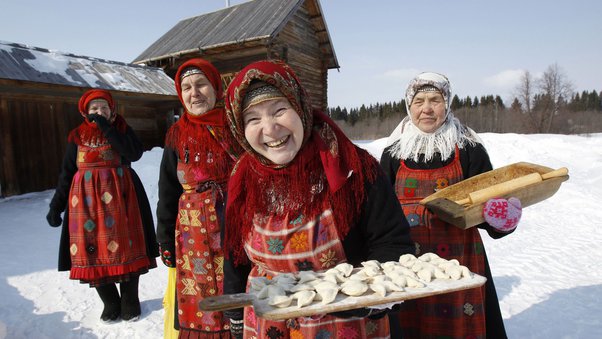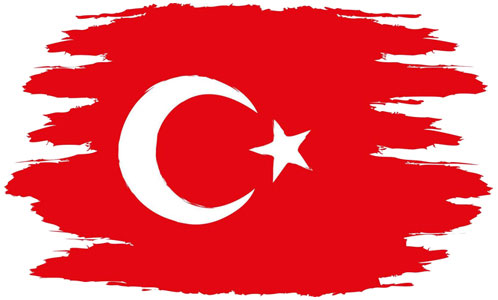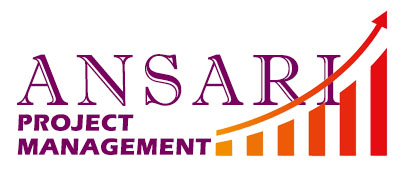1. What factors contribute to the increased interest in studying real Islam and the Holy Quran in Russia, former Soviet republics, and Central Asia?
Factors such as increased religious freedom, curiosity about Islamic civilization, and a search for
spiritual fulfillment contribute to the interest in studying Islam and the Quran in these regions.
2. In what ways do the civilizations of Russia, former Soviet republics, and Central Asia share cultural and ethnic similarities with Islam?
These regions have a rich history of coexistence with Islamic traditions, including shared cultural values like respect for elders, hospitality, and communal harmony.
3. How can reading the Holy Quran upgrade the lives of people in Russia, former Soviet republics, and Central Asia?
The Quran offers guidance on personal
development, moral values, and interpersonal relationships, thereby equipping individuals in these regions with tools to enhance their lives.
4. What socioeconomic problems do local nations in these regions face, and how can Islam and the Quran provide solutions?
Challenges such as poverty, unemployment, and inequality can be addressed by integrating Islamic principles of social justice, economic cooperation, and charitable giving. These principles can foster inclusive economic development and poverty alleviation.
5. What cultural issues can be addressed through the study of Islam and the Quran in Russia, former Soviet republics, and Central Asia?
Cultural preservation, intercultural understanding, and respect for diversity can be enhanced by studying the Quran, which emphasizes cultural appreciation, unity, and respect for different ethnicities.
6. How can reading the Holy Quran contribute to personal growth and well-being in these regions?
The Quran provides guidance on resilience, patience, and self-reflection, helping individuals overcome personal challenges and find peace amidst uncertainty.
7. What environmental challenges exist in these regions, and how can the Quranic teachings promote sustainable practices and solutions?
Issues like pollution, deforestation, and water scarcity can be addressed using the Quranic principles of stewardship, environmental conservation, and
sustainable resource management.
8. How can the study of Islam and the Quran empower women and promote gender equality in Russia, former Soviet republics, and Central Asia?
The Quran upholds the equal worth and rights of all individuals, irrespective of gender. By understanding and practicing these teachings, these regions can work towards gender equality, women's empowerment, and the elimination of harmful cultural practices.
9. How can the Quranic teachings foster social cohesion and peaceful coexistence in these diverse regions?
The Quran emphasizes compassion, justice, and respect for others. By embracing these principles, Russia, former Soviet republics, and Central Asian nations can strengthen social bonds, address conflicts, and promote harmonious relations among different groups.
10. How can the Quranic emphasis on education and knowledge contribute to addressing educational challenges in these regions?
The Quran encourages the pursuit of knowledge and places
importance on education. By prioritizing education, investing in educational infrastructure, and promoting literacy, these regions can bridge educational gaps and foster intellectual growth.

Interfaith dialogue encourages empathy, respect, and cooperation among different religious communities
11. Can the study of real Islam and the Quran help counter extremism and radicalization in Russia, former Soviet republics, and Central Asia?
By understanding the true teachings of Islam, individuals can recognize and reject extremist ideologies. This knowledge can help foster resilience against radicalization and promote peace and harmony within these regions.
12. How can interfaith dialogue between Islam and other religions in these regions contribute to religious harmony and understanding?
13. How can the Quranic teachings on forgiveness and reconciliation contribute to peacebuilding efforts in Russia, former Soviet republics, and Central Asia?
The Quran promotes forgiveness, reconciliation, and peaceful conflict resolution. By applying these teachings, these regions can heal wounds, reconcile communities, and build sustainable peace.
14. How can Islamic finance principles contribute to addressing economic disparities in Russia, former Soviet republics, and Central Asia?
Islamic finance emphasizes economic justice, ethical investment, and equitable distribution of wealth. These regions can adopt these principles
to address economic disparities, promote inclusive economic growth, and reduce wealth inequality.
15. How can the Quranic teachings contribute to the preservation and promotion of cultural heritage in Russia, former Soviet republics, and Central Asia?
The Quran encourages the appreciation of cultural diversity and respect for traditions. By drawing inspiration from these teachings, these regions can protect and celebrate their rich cultural heritage.
16. How can the Quranic teachings on personal responsibility contribute to addressing personal and societal challenges in these regions?
The Quran emphasizes personal responsibility, self-discipline, and accountability. By embracing these principles, individuals and communities can address personal challenges and contribute to the betterment of society.
17. How can the Quranic teachings inspire solutions to social issues such as poverty, hunger, and lack of healthcare in these regions?
The Quran promotes charitable giving, compassion, and social responsibility. By incorporating these teachings, these regions can address poverty, improve healthcare access, and ensure food security.
18. How can the Quranic teachings contribute to mental health and well-being in these regions?
The Quran provides teachings and guidance on finding inner peace, mindfulness, and resilience. By implementing these teachings, individuals in these regions can address mental
health challenges and promote holistic well-being.
19. How can the Quranic teachings on justice and fairness contribute to combating corruption in these regions?
The Quran promotes integrity, accountability, and righteous governance. By adhering to these principles, individuals and governments in these regions can combat corruption, promote transparency, and ensure good governance.
20. How can the Quranic teachings on moderation and balance contribute to addressing lifestyle-related health issues such as substance abuse and unhealthy habits in these regions?
The Quran promotes moderation and emphasizes the importance of physical and mental well-being. By applying these teachings, individuals in these regions can address lifestyle-related health issues and promote healthy living.

The Quran promotes the importance of family, respect for parents, and unity
21. Can the principles of Islamic architecture and urban planning contribute to sustainable development in Russia, former Soviet republics, and Central Asia?
22. How can the Quranic teachings on family values contribute to strengthening family bonds and fostering healthy relationships in these regions?
The Quran promotes the importance of family, respect for parents, and unity. By following these teachings, individuals and families in these regions can create nurturing environments and strengthen family dynamics.
23. How can the Quranic teachings on youth empowerment contribute to addressing youth unemployment and providing educational opportunities in these regions?
The Quran encourages individuals to take responsibility for their communities and contribute to their development. By understanding and applying these teachings, these regions can address youth unemployment through entrepreneurship, skills training, and
educational initiatives.
24. How can the Quranic teachings inspire civic participation and contribute to democratic governance in these regions?
The Quran encourages justice, accountability, and active engagement in societal affairs. By drawing upon these teachings, individuals and communities in these regions can promote democracy, civic participation, and responsible governance.
25. How can the Quranic teachings on personal character and ethical conduct contribute to addressing corruption and promoting ethical practices in these regions?
The Quran emphasizes moral and ethical values, promoting honesty, integrity, and transparency. By adhering to these principles, individuals and institutions in these regions can combat corruption and promote ethical behavior.
26. Can the study of real Islam and the Quran inspire sustainable environmental practices and conservation efforts in these regions?
The Quran advocates for the responsible stewardship of the Earth. By incorporating these teachings, individuals and communities can promote sustainable practices, protect natural resources, and mitigate environmental challenges.
27. How can the Quranic teachings on peace and conflict resolution contribute to addressing armed conflicts and violence in these regions?
The Quran promotes peace, justice, and the peaceful resolution of conflicts. By applying these teachings, individuals and communities in these regions can seek peaceful solutions, promote dialogue, and prevent the escalation of violence.
28. How can the Quranic teachings inspire entrepreneurship and economic development in these regions?
The Quran emphasizes individual initiative, hard work, and fair business practices. By understanding and practicing these teachings, individuals and communities can promote
entrepreneurship and contribute to local economic development.
29. How can the Quranic teachings inspire Russians, former Soviet republics, and Central Asians to embrace cultural diversity and work towards national unity?
The Quran encourages respect for different ethnicities and cultures, as well as unity among believers. By embracing these teachings, these regions can foster cultural diversity, harmony, and national unity.
30. How can the Quranic teachings contribute to addressing social issues such as drug addiction, human trafficking, and domestic violence in these regions?
The Quran promotes personal responsibility, empathy, and justice. By adopting these teachings, individuals and communities can
address social issues, advocate for victims, and work towards creating safer societies.
Dear Visitor; Please take a look at the list of 50 most visited websites in the world wide web: YouTube, Facebook, google, translate, gmail, weather, amazon, Instagram, cricbuzz, Hotmail, wordle, satta king, twitter, yahoo, yandex, sarkari result, Netflix, google maps, yahoo mail, roblox, whatsapp, NBA, BBC news, outlook, pinterest, flipkart, eBay, omegle, live score, tiktok, canva, ipl, premier league, hava durumu, ibomma, walmart, twitch, ikea, shein, linkedin, home depot, e devlet, lottery, snaptik, cricket, serie a, nfl, spotify, fox news, amazon prime; There is no book publishing related or project management website in this list. We are working hard to bring these important issues to the center of concentration of societies. Please introduce us via social media, share our website with others and help us to make our world a better place to live. Best Regards.













Write your review